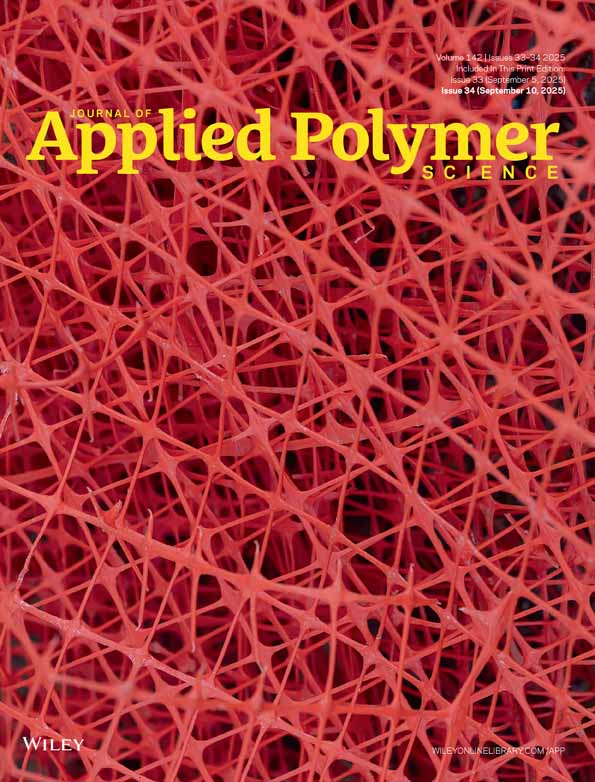Copolymerization and addition of styrene and N-phenylmaleimide in the presence of nitroxide
Abstract
The copolymerization and addition reaction of styrene (S) with N-phenylmaleimide (PMI), either neat or in xylene, have been found to proceed at 125°C in the presence of 2,2,6,6-tetramethylpiperidin-1-yloxy (TEMPO) radicals. TEMPO-terminated alternating S-PMI copolymers and comonomer adducts were obtained. The amounts of the low molecular weight compounds increased with the increasing content of PMI in the initial mixture. The reaction suggests formation of monofunctional unimolecular initiators. In the autopolymerization of neat comonomers, a mediating role of TEMPO was observed. The synthesized copolymers containing TEMPO end groups were used as macroinitiators to initiate polymerization of styrene. The molecular weight distributions of resulting poly(styrene-alt-N-phenylmaleimide)-block-polystyrene copolymers indicated the presence of both low molecular weight termination products and some copolymer precursor. The copolymers and comonomer adducts were characterized using the nitrogen analysis, size-exclusion chromatography (SEC), and NMR spectroscopy. © 2000 John Wiley & Sons, Inc. J Appl Polym Sci 76: 1093–1099, 2000




